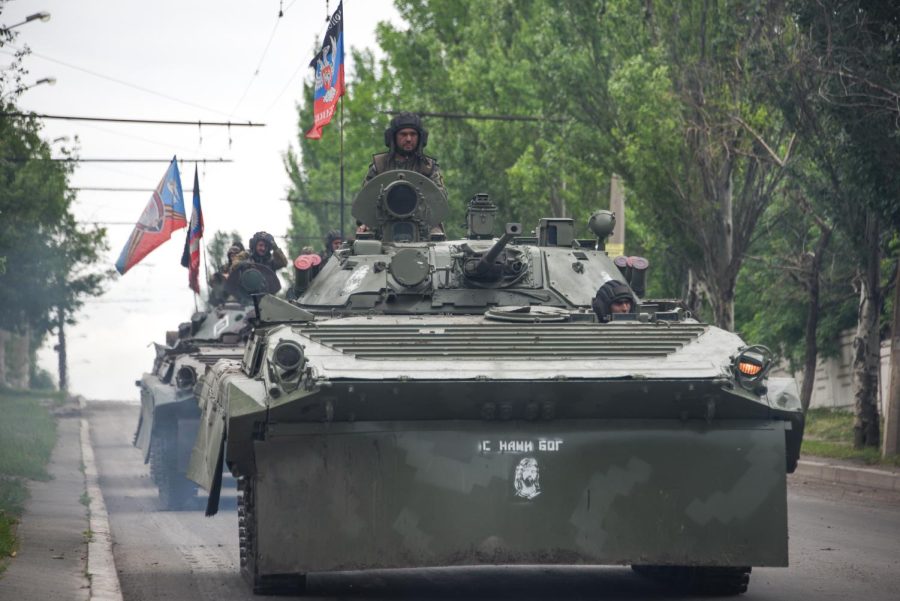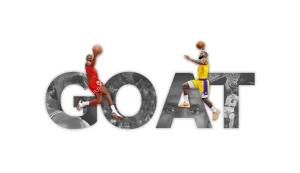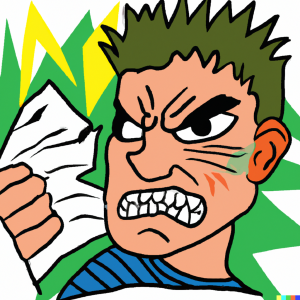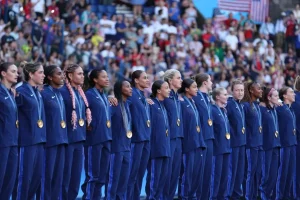Russia Increases Pressure on NATO Over Ukraine Conflict
A Russian-backed rebel armored fighting vehicle seen near Donetsk in Eastern Ukraine.
January 13, 2022
Can one explain with adequate verbiage the impending invasion of Ukraine?
Crimea holds a hundred thousand sentinels outside the country’s borders. Most of these men seem to be Russian-backed separatists whose escapades began in early 2014 with the annexation of Crimea from Ukraine.
In recent weeks, American intelligence worked its way to the information that Russia would try to invade the eastern half of Ukraine. President Joe Biden claims he will “respond decisively”, perhaps in the form of massive new sanctions* imposed on the country.
But will sanctions do it this time for the Kremlin?
The Russian government has pined for Ukraine since the dissolution of the Soviet Union in December of 1991. Obtaining Ukraine seems to be one of many things on President Vladimir Putin’s agenda. Part of that goal seems to include making sure that Ukraine doesn’t join NATO (Ukraine borders many NATO countries). If Ukraine decides to join NATO or seek help from the EU* all countries involved would need to face the consequences.
Formed in 1949, NATO was created as a political way of protecting against The Soviet Union. If Ukraine joins NATO, its initiatives are aligned with America and decisive European powers. Russia may begin to think twice about poking the bear, or the eagle, so to speak.
Ukraine won’t receive aid through the US, however, except in regards to money or military funding. Yet recently, Ukraine has begun to strengthen its ties with Turkey (a NATO member).
While most NATO members lack the willingness to fight Russia due to their close ties with the country, Turkey has re-committed itself to the selling of military vessels for Ukraine. Turkish President Recep Tayyip Erdoğan has found the stomach to take on Moscow, selling weapons towards Ukraine’s cause and becoming a stronger member of NATO.
Ukraine must decide whether to face Russia and join NATO or drudge on in an endless stalemate that has lasted since 2014.
*Sanctions: commercial and financial penalties against a self-governing, state, or individual.
*EU or European Union: A diverse connection of predominantly western European countries through economic and political support.












